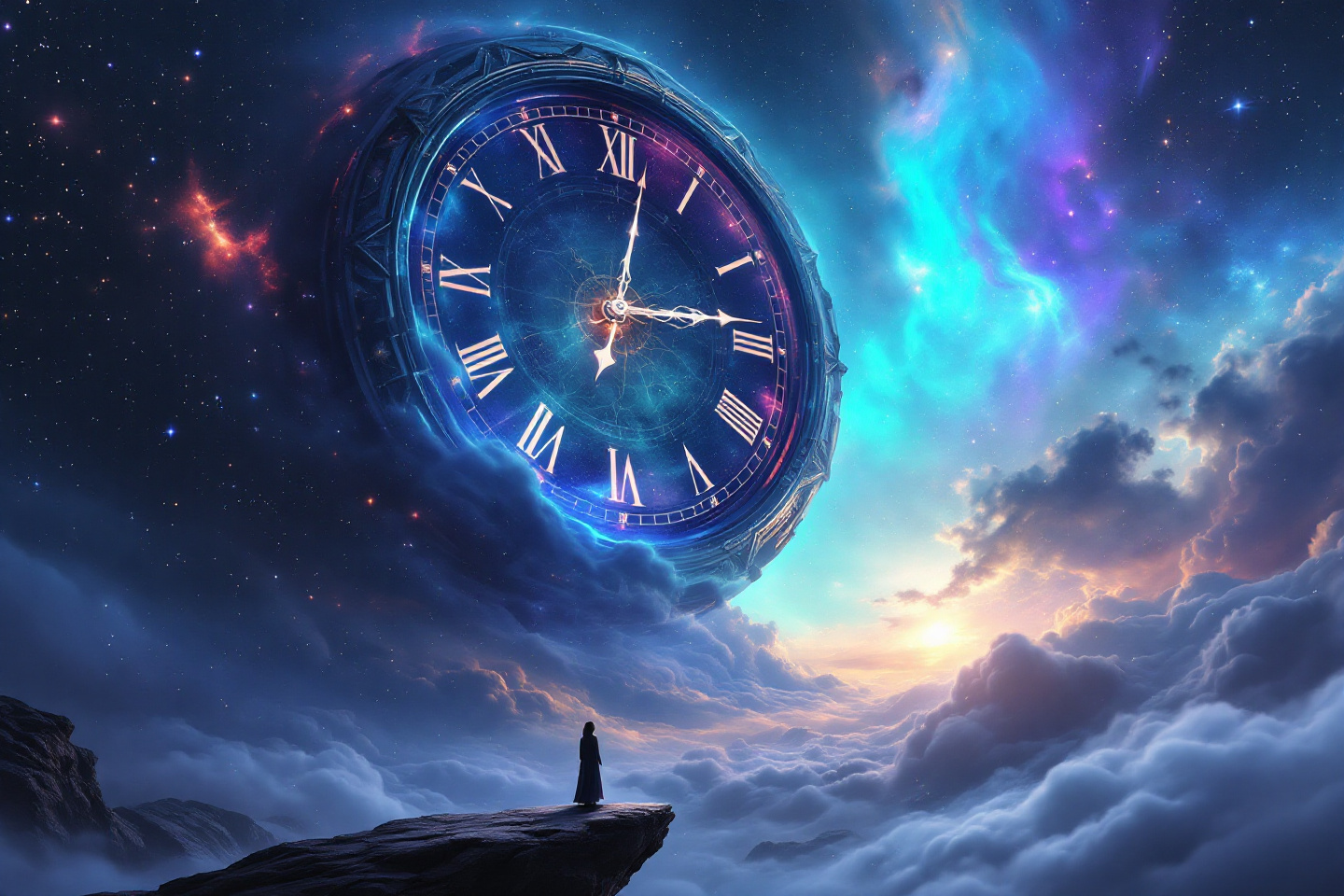We live by the clock, obsess over deadlines, and let time dictate our lives. But, imagine waking up one day to discover that everything you believed about time was wrong. What if time is nothing more than a mental construct and we are prisoners of an illusion?
Science is beginning to reveal a startling truth that the time may not be the fundamental structure we believe it to be. Instead, time appears to be an intricate illusion shaped by our perception. The universe doesn’t experience time the way we do.
Past, present, and future may already coexist, and our understanding of time’s movement could be nothing more than a trick of the mind.
“Time isn’t something we travel through—it’s a pattern we impose on change, turning stillness into motion.”
Why Time Feels Real (But Isn’t)
Think about a film reel. Each frame exists at once, but when played in sequence, it creates the illusion of motion. What if our experience of time works the same way?
- Physics doesn’t insist on time marching forward—it’s just as comfortable running the clock backward, even if that breaks our intuition.
- Time isn’t a fixed rhythm—it stretches, bends, and slows based on speed and gravity.
- Even something as simple as standing on a mountain makes time tick faster than it does at sea level. Turns out, your elevation can give you a head start on the future!
If the universe itself doesn’t experience time the way we do, then what exactly is this thing we call the present?
“Time isn’t a force moving us—it’s the pattern we impose on a shifting universe.”
The Myth of ‘Now’: Why the Present Doesn’t Really Exist
We take comfort in the idea that ‘now’ is a shared experience, a universal moment binding us all. But science disagrees. There is no single, objective ‘now’—it shifts depending on where you are and how fast you’re moving.
- A clock on a satellite runs faster than one on Earth, meaning its ‘now’ doesn’t match ours.
- A traveler moving near the speed of light experiences time more slowly than someone standing still—two completely different versions of ‘now.’
- In deep space, two distant observers may disagree about what events are happening simultaneously.
If the present moment changes depending on perspective, then is the ‘now’ we cling to even real? Or is it just a convenient fiction we tell ourselves??
“Your present is just a perspective. Somewhere else in the universe, your future has already happened.”
Why We Remember the Past But Not the Future
If time isn’t moving forward, why do we experience it that way? Why do we remember yesterday but not tomorrow?
The answer lies in entropy—the law that says disorder in the universe always increases.
- A shattered glass never spontaneously reforms because disorder is far more likely than order.
- The universe began in an incredibly ordered state and has been moving toward greater chaos ever since.
- Our brains evolved to store memories in the direction that entropy increases—what we call ‘the past.’
- Even the way we process information is shaped by this principle—our thoughts build on past experiences, never the other way around.
- The sense of time moving forward may be an evolutionary trick, helping us navigate a world where cause precedes effect.
If the universe had started differently, we might experience time in reverse—or not at all. And if entropy is what gives time its direction, what happens when the universe reaches its maximum disorder? Could time itself cease to exist?
Can the Future Influence the Past?
Here’s where things get even stranger. In the quantum world, cause and effect aren’t as clear as we think.
- In the famous double-slit experiment, a particle’s behavior in the past changes based on how we observe it in the future.
- Some theories suggest that what we do now could alter what happened before—as if the past isn’t fixed but constantly evolving.
- The universe may not be a strict sequence of events, but a vast, interconnected reality where time loops back on itself.
If time isn’t strictly linear, then the future isn’t simply something we step into—it may already exist, and in ways we don’t yet understand, we might be entangled with it more than we realize. Could our choices be shaping not just what comes next, but what has already been?
“What if time isn’t unfolding ahead of us, but taking shape behind us, molded by the choices we make?”
How This Changes the Way We Live
If time isn’t what we thought, should we live differently? Absolutely.
- Stop chasing time. If past, present, and future coexist, time isn’t slipping away—we are simply shifting our focus from one frame to another.
- Experience the moment, don’t measure it. If ‘now’ is just an illusion of perception, then meaning isn’t in time—it’s in attention.
- Redefine control. If time is woven together rather than unfolding, then every choice we make shapes more than just what comes next—it may already be part of something much larger.
“The goal is not to race against time, but to understand that time is never racing against us.”
Final Thoughts
We have spent our lives bound by the illusion of time—counting the hours, fearing the future, and clinging to the past. But once we understand that time is a construct of perception rather than a force of nature, we can break free.
What would life look like if we stopped seeing time as something we are trapped in? What if we saw ourselves as part of a reality where all moments exist at once, and our only task is to fully experience them?
Maybe the greatest freedom isn’t having more time—it’s realizing that time never truly owned us in the first place.
“Reality is not a timeline—it’s an infinite expanse of possibilities, waiting for us to explore.”



